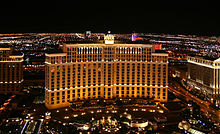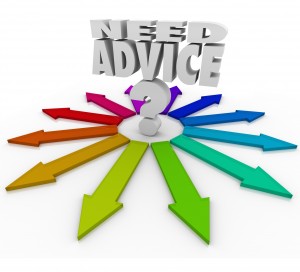What, Me Worry? Two Dumb Ways to “Think”
What Do You and Compulsive Gamblers Have in Common?
 Dateline: The Bellagio Sports and Race Book, Las Vegas. If you don’t think we attempt to control all sorts of things that are outside our control . . . you should check out the bettors in this place. Once bets are down, the crowd stands up and cheers, begs actually, as if the horse and rider could hear in faraway Florida. What a bunch of dummies. “Hey! move your fat head I can’t see my horse! Go baby go! Come on! You’re not even trying and I have two bucks riding here!”
Dateline: The Bellagio Sports and Race Book, Las Vegas. If you don’t think we attempt to control all sorts of things that are outside our control . . . you should check out the bettors in this place. Once bets are down, the crowd stands up and cheers, begs actually, as if the horse and rider could hear in faraway Florida. What a bunch of dummies. “Hey! move your fat head I can’t see my horse! Go baby go! Come on! You’re not even trying and I have two bucks riding here!”
Now. What was I saying? 
To be human is to be anxious. When we are anxious our thoughts are either positively concentrated as when we spot an escape route through a burning building, or incredibly stupid. Even if we do not engage in visible self-defeating behaviors, we busy ourselves with corrupted thoughts. Self-defeating thoughts are worse because of the time we are willing to devote to the project.
Day by day, hour by hour, we waste time, energy, and the patience of others in our attempts to make the future turn out the way we want it to. This is called worrying.
Worrying leads to more self-destructive patterns of decision-making. Two of these habits are “random behavior” and “chasing our losses.” Both of which result in the opposite of what we want.
 Why would any of us engage in such obvious self-destruction? Our emotions grab us by the throat and slaps us into submission, that’s why. Our anxiety awakens the monster who screams, “You are in really big trouble! What an idiot you are? What do you expect to happen when you plan something like that? This is terrible and awful and you will regret your decision forever!”
Why would any of us engage in such obvious self-destruction? Our emotions grab us by the throat and slaps us into submission, that’s why. Our anxiety awakens the monster who screams, “You are in really big trouble! What an idiot you are? What do you expect to happen when you plan something like that? This is terrible and awful and you will regret your decision forever!”
Our Thinking Guidance System would have a shot at assessing our dilemma, weighing the odds, and improving our situation. But our emotions tell us, “Forget facts. Just do something.”
Often we have a self-destructive habitual way of attempting to rid ourselves of anxiety that has nothing to do with our current dilemma. A handy bag of cookies or an extra mile on the treadmill. (I’ve heard of this one, not experienced it.)
The descriptions below focus on poor gambling decisions, but you can easily substitute “over-eating,” “going on ‘needy’ jags,” “spending money,” “worrying,” and launching “self-criticism jags.”
What Do You and Compulsive Gamblers Have in Common?
You say “nothing.” I say, “nay, nay.”
Back to the Bellagio in Las Vegas. It’s easy to spot the gamblers using their emotions to make decisions. They are lined up at the ATM. Also, there are lots of mirrors.
1. Random behavior: We are lost.
When we go random we move like the hands of a clock gone berserk. We bet on anything and everything (eat, drink, escape) in sight. We make up fairy tales about the wisdom of our choices, usually supported by the latest “tips” on the internet or in magazines. (In less than an hour I located over 450 diet sites, for example.)
Random mode as attempted anxiety management is characterized by a zigzag approach to the world and the people in it. We jump in and out of relationships (even if we don’t leave, we jump in and out in our imaginations), jobs, goals, diets, theories, and five minute plans. We stand blankly at the roulette table or the open refrigerator. We are lost and quick to jump on the latest fad or guru. We carry crises and advice with us to share with others like a bag of Halloween candy.
A current favorite is trolling the internet– as if our anxiety is caused by lack of the certain piece of golden information we haven’t found yet.
 2. Chasing Our Losses: We are desperate.
2. Chasing Our Losses: We are desperate.
When a situation is going south, we repeat what isn’t working. Only faster and harder.
Already “down” or behind in what we hoped to accomplish, our emotions urge us to double our bets. Raise our volume. Make grander threats. Our emotions tell us if we raise the stakes high enough, we will control the future.
Sigh. Signing out for now. ChickenDinnerWinner came in last. To get even I’m doubling up on SimonSaysImALoser.





